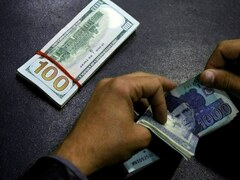BEIJING: China’s central bank said it has reshuffled its monetary policy committee to include securities regulator head Wu Qing, vice central bank chief Xuan Changneng and two new academic members.
Wu, who was named the head of the China Securities Regulatory Commission (CSRC) last month, replaced his predecessor Yi Huiman on the committee, the central bank said in the statement late Tuesday.
The monetary committee, chaired by People’s Bank of China Governor Pan Gongsheng, also added two new academic members - Huang Yiping from Peking University, and Huang Haizhou from Tsinghua University, the central bank said.
Huang Yiping, who has a doctorate in economics from Australian National University and has worked at Citi and Barclays, is dean of Peking University’s National School of Development.
Huang sat on the PBOC policy committee between 2015 and 2018.
Huang Haizhou, a US-trained economist, was once a senior executive at investment bank China International Capital Corporation (CICC) and has taught at the Chinese University of Hong Kong, London School of Economics.
China stocks drop on report of budget gap of 3pc of GDP
The new academic members replace Liu Shijin and Cai Fang, who are both influential government economists.
The policy panel meets once every quarter to discuss economic and policy issues and recommends changes when necessary, but its influence is limited. In January, China’s cabinet amended rules for the central bank policy panel to strengthen the Communist Party’s leadership over key policy issues.
The PBOC, whose regulatory powers have been eroded in a recent shake-up, lacks the independence of institutions such as the US Federal Reserve and needs cabinet approval on key changes in interest rates and the value of the yuan.
Pan said at a press conference this month that the central bank had “rich monetary policy tools at its disposal” and that there was still room to cut banks’ reserve requirement ratio (RRR).





















Comments
Comments are closed.